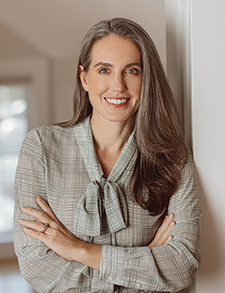 One of the aspects of medicine that makes the profession so fulfilling is that we continue to evolve in how we best care for our patients. Often the surgical techniques we learn in medical school and residency evolve over time. This evolution can be caused by technological advancements, patient experiences, peer learning, conferences, and simply the refinement of one’s own surgical skills. The goal, however, remains the same—providing the highest quality care to our patients.
One of the aspects of medicine that makes the profession so fulfilling is that we continue to evolve in how we best care for our patients. Often the surgical techniques we learn in medical school and residency evolve over time. This evolution can be caused by technological advancements, patient experiences, peer learning, conferences, and simply the refinement of one’s own surgical skills. The goal, however, remains the same—providing the highest quality care to our patients.
Explore This Issue
November 2024I was told many years ago that it had been shown that surgical complications increase during the first few months after big conferences because attendees go home and try the new technique. If you have a technique that works well and is low-risk, why change?
With my 25th medical school reunion approaching this spring, I’ve now spent almost 30 years learning how to care for patients. During that time, I have seen the evolution of image guidance systems and surgical robots that have had a profound impact on the surgical management of patients with head and neck disorders. Only a few decades prior, the advancement of microsutures and smaller diameter scopes facilitated the creation and advancement of the fields of microvascular surgery and rhinology. Just as my kids could not imagine life without cell phones, our residents have never practiced without image guidance or microvascular reconstruction. Certainly, these technological advancements have led to improved patient outcomes over the past 40 years.
But how do we as a field and as individual surgeons incorporate new surgical techniques into our practices? When do we change our techniques and when do we not? Often it is because we or others ask “Why?”
What seem like simple questions—‘When can patients shower after surgery, return to work, or restart anticoagulation?’—impact our patients, but we have very little data to show that allowing patients to shower increases the risk of infection or to establish the timing of restarting anticoagulation that has the best risk-benefit profile for the patient. Some of the biggest changes in my practice have been driven by a trainee or colleague asking me, “Why?”
Many years ago, I gave antibiotics to my rhinoplasty patients because it made me feel somehow safer and it was a common practice at the time. I completely changed my practice, as did many others, when several members of our field were very vocal about complications their patients had had from antibiotic prophylaxis and asked us all, ‘Why are you still routinely using post-operative antibiotics?’ This question also informed a clinic trial that is currently underway.
It is good to have people ask why you do something a certain way. I’ve found at this point in my career that I typically have a good reason, and when I don’t, the question makes me really think about whether I’m doing something just because it was dogma when I was in training or because research or clinic experience has guided my current management.
—Robin